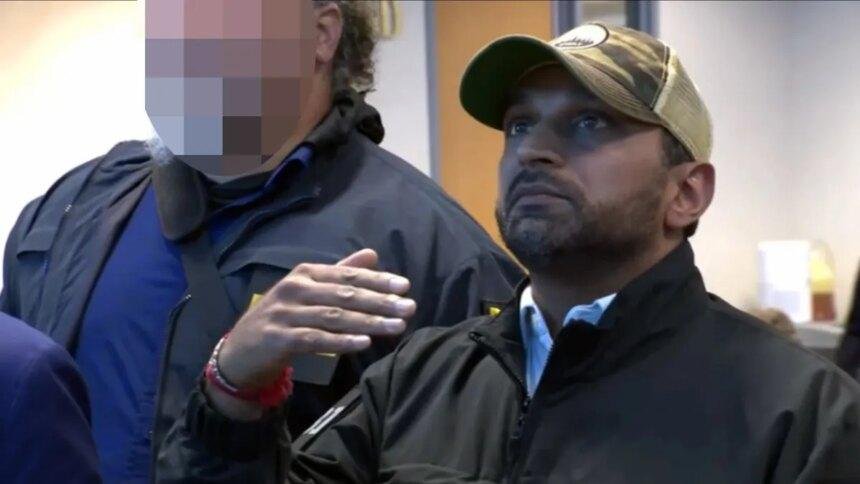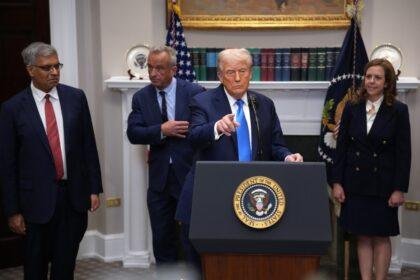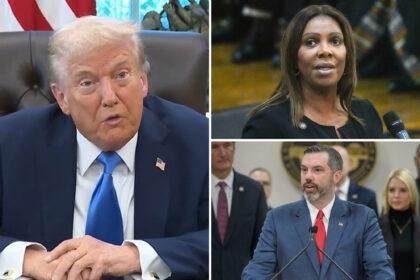FBI Director Defends Immigration Enforcement in Chicago Amid Controversy
In a recent visit to Chicago, FBI Director Kash Patel emphasized the bureau’s commitment to addressing crime in the city, particularly as it relates to immigration enforcement. This visit comes at a time when the Trump administration’s immigration policies face significant pushback from local officials and community leaders. Patel’s remarks highlight a broader strategy aimed at tackling not only violent crime but also the illegal immigration that he claims is linked to it.
A Focused Approach to Crime
During a tour of the FBI’s Chicago field office, Patel articulated the need for a “focused effort” to combat both violent crime and illegal immigration. He stated, “The environment here in Chicago needs a focused effort, not just on crushing violent crime, but also, removing the illegal aliens that are correlated to that violent crime.” This assertion reflects a long-standing narrative within the Trump administration that links immigration to crime, a claim that has been met with skepticism by many experts and local leaders.
Patel’s comments come in the wake of rising crime rates in Chicago, which have been a point of contention in local and national politics. The FBI director attributed the current situation to “years of failures in policies by the prior administration,” suggesting that previous administrations allowed conditions to deteriorate, leading to an influx of illegal immigrants and associated criminal activity.
The Role of Federal Agencies
While immigration enforcement is not traditionally within the FBI’s purview, Patel insisted that all federal agencies under the Trump administration are working towards a unified goal. He described this as a “whole-of-government approach,” indicating that various agencies, including the Department of Homeland Security (DHS), are collaborating to address the multifaceted issues of crime and immigration.
Patel praised the Chicago Police Department as “great partners,” acknowledging their daily efforts in combating crime. However, he also drew a distinction between the rank-and-file officers and their leadership, suggesting that political priorities may not align with the needs of the community.
Political Tensions and Local Resistance
The push for increased federal involvement in Chicago has not been without controversy. Illinois Governor J.B. Pritzker has publicly opposed the deployment of National Guard troops to the city, arguing that such measures are unnecessary and could exacerbate tensions. Pritzker’s administration has labeled the federal government’s claims as a “smorgasbord of lies,” asserting that local law enforcement is capable of handling the situation without federal intervention.
This political clash underscores a broader debate about the role of federal authorities in local law enforcement. Critics argue that federal involvement can lead to distrust within communities, particularly among immigrant populations who may fear deportation or other repercussions.
The National Guard Debate
The discussion around deploying the National Guard in Chicago has escalated, with Deputy Attorney General Todd Blanche asserting that the Guard’s presence is essential for restoring order. He remarked, “It’s almost laughable that the state government is standing up and saying, don’t let the National Guard in.” This statement reflects a growing frustration among federal officials regarding local resistance to their strategies.
The National Guard’s potential deployment has already faced legal challenges, with various stakeholders questioning the appropriateness and effectiveness of such measures. The historical context of using the National Guard in urban settings often evokes memories of civil unrest and community backlash, raising concerns about the implications of military involvement in civilian law enforcement.
Broader Implications for Immigration Policy
Patel’s visit and the subsequent discussions highlight the ongoing national debate surrounding immigration policy and its intersection with crime. The Trump administration’s hardline stance on immigration has been a defining feature of its policy agenda, often framing the issue as a matter of public safety. However, this approach has faced criticism from various quarters, including civil rights organizations and immigrant advocacy groups, who argue that it fosters fear and division within communities.
The complexities of immigration and crime are further compounded by socio-economic factors, including poverty, lack of access to education, and systemic inequality. Many experts argue that addressing these root causes is essential for creating long-term solutions to crime, rather than solely focusing on enforcement measures.
Conclusion
As the FBI continues to navigate its role in local law enforcement, the tensions between federal and state authorities in Chicago serve as a microcosm of the larger national debate on immigration and crime. Patel’s defense of the FBI’s actions reflects a commitment to a comprehensive approach, but it also raises questions about the effectiveness and ethics of such strategies. The ongoing dialogue between federal and local officials will likely shape the future of immigration policy and law enforcement in the United States, as communities grapple with the implications of these complex issues.











